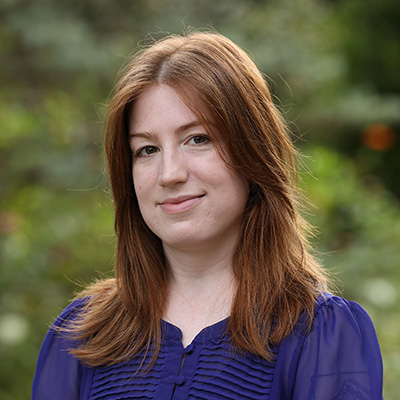Arianna Griffiths, Editor-in-Chief –
Have you ever wondered if the stories your parents told you about their experiences have shaped your identity? Dr. Kristina Steiner’s research on vicarious memory can answer that.
Steiner joined Denison as an Associate Professor in the psychology department after earning her PhD at the University of New Hampshire and conducting post-doctoral research in Aarhus, Denmark. Steiner specializes in lifespan development and autobiographical memory. She teaches courses such as Adult Development and Aging and the Psychology of Language.
Steiner was also chosen to be Denison Scientific Association’s (DSA) latest speaker and on Oct. 9, she gave a presentation on several research studies she has conducted on the topic of vicarious memory. Vicarious memory is something experienced by another person that is told to someone else who was not there. As a result, this memory becomes something that shapes that person’s identity and feelings, even if they did not experience it firsthand. This intergenerational transmission of memories has historically been related to higher well-being scores, making it important to study further because of its ability to benefit people’s lives. Autobiographical memory, however, is the memory people have from their own experiences.
Steiner cited her graduate school advisor as an inspiration for her research on vicarious memory.
“In graduate school, my graduate school advisor had done some research on clinicians, and clinicians having vicarious trauma. So, they didn’t experience whatever it was that their client experienced, but hearing about that experience from their client changed them,” Steiner said.
Steiner found it interesting that a clinician or court sonographer could have vicarious trauma from the difficult experiences they hear from others through their lines of work.
“It’s interesting that we take other people’s memories and that they can be really meaningful, and that they can change you and that they can change the way that you behave,” Steiner said.
This spark lit the flame for Steiner to embark upon years of research to produce published studies on vicarious and autobiographical memories in several age groups, from college students at Denison enrolled in introductory psychology classes to older adults.
A study she conducted found that negative personal and vicarious memories could be used to the same extent as one another to understand one’s identity and relationships. This shows how vicarious memories are equally as important to study as traditional autobiographical memories.
During her DSA presentation, she discussed her most recent study that compares college students and older adults as the age groups, as well as results from two other studies she has conducted.
“While college students always rated their own personal memories higher than memories from their parent’s life on the three functions (self, directive, [and] social), older adults showed no difference between their negative personal and negative vicarious memories for ratings of the social and directive functions. In a follow up study, older adults actually gave higher ratings to the negative vicarious memories than their own personal memories on the social function. In a different study, older adults saw more overlap between their identity and their parent’s identity than college students,” Steiner said.
Research is a challenging part of the study of psychology, as well as in many other fields. Steiner emphasized the importance of the researcher’s genuine interest in the topic for an fulfilling and productive research experience.
“I think research really all comes together if you are passionate about it,” Steiner said.
“I would say if students have ever been in a class with research and they haven’t enjoyed it, don’t assume that you don’t like research…the more interested you are in the topic, the more interested you are in exploring it and finding things out, and doing all of that background research, and designing something,” she said.
Memory has always fascinated Steiner, but she began by studying a different phenomenon than vicarious memory specifically.
“The first project that I did was on something called ‘the reminiscence bump,’ where you ask older adults to tell you memories from their lives and you look at the whole sample of older adults. The memories tend to cluster between the ages of 15 and 30, so almost nothing from childhood and almost nothing from later in life.” Steiner said. Her original project focused predominantly on why this specific fifteen years would yield the most memories in older adults.
Steiner has many hopes for the future of psychology, one being psychologists focusing more on diverse samples and issues that concern all people from all backgrounds. She believes this will allow researchers to gain a more comprehensive understanding of the human mind.
“I hope that we spend more concerted effort trying to understand people who aren’t white and rich and educated,” Steiner said. “We have a long, terrible history of just ignoring people and doing studies and saying ‘this is how the mind works’ and ‘this is how people behave,’ but our samples have been so small and so not representative that I think, honestly, we don’t know very much about the whole range of human experience.”
Editor’s Note: The professor spotlight is a recurring feature. Email [email protected] if you would like to suggest a professor to be featured.

